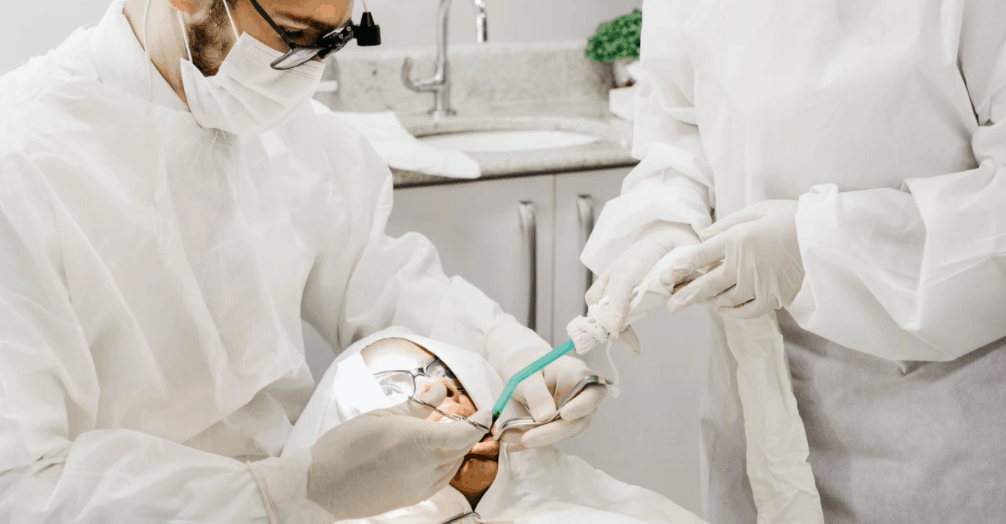To maintain excellent dental health, dentists recommend going for a dental checkup every six months. But with a busy work schedule, a demanding social life, and family responsibilities to take care of, few people actually manage to go to the dentist twice a year. Most people only go to the dentist’s office when they have a dental emergency such as intense tooth pain. It’s important to know that pain is not the only sign that you have a dental problem. Many oral health issues only produce mild symptoms that are easy to overlook if you’re not careful.
Here are five warning signs that you have poor oral health. Make an appointment for a dental exam as soon as you start experiencing one of these signs.
1. Tooth Swelling
A tooth infection typically manifests through persistent pain or swelling. Although it’s impossible to ignore tooth pain, swelling can be easily overlooked when it’s the only symptom you have. So, it’s important to pay close attention when brushing or flossing and check whether your gums look swollen or irritated. If there’s something wrong, you will feel mild pain when touching the area. Don’t ignore swelling in your teeth or gums because this can be a sign of tooth infection or gum disease. Plus, you may soon experience pain along with the swelling, so the sooner you go to the dentist, the better.
2. Increased Sensitivity to Hot and Cold
It’s normal to experience a slight inconvenience when eating hot food or drinking cold beverages, but if you notice a higher sensitivity than usual, you should be concerned. A sudden, increased sensitivity to temperatures and foods can be a sign of an underlying oral problem. There can be many causes, such as a fractured tooth, teeth grinding, or tooth decay. It’s crucial to identify the issue in its early stages before your teeth suffer lasting damage. Find an Anchorage dentist office and call for an appointment as soon as possible, so you can get adequate treatment. A dentist can also recommend you a toothpaste for sensitive teeth.
3. Bleeding Gums
Most people notice their gums bleeding when brushing or flossing and assume that this happens because they used the toothbrush too forcefully or flossed carelessly. However, healthy gums do not usually bleed. So, bleeding gums is not something you should ignore. It’s very important to visit the dentist when you notice bleeding because this can be a sign of gum disease. If the problem is severe, you will also notice additional signs. Are your gums swollen, inflamed, or puffy? Do you sense a strange odor? Do your gums show signs of receding? If your answer is yes to any of these questions, you need a checkup urgently.
4. Bad Breath
Although bad breath is unpleasant, most of the time it’s harmless. But if you experience persistent bad breath despite daily brushing and flossing, you may have a deeper problem. Bad breath, medically known as halitosis, can be caused by various health issues. The most common conditions that lead to bad breath are acid reflux, dry mouth, diabetes, gum disease, or chronic sinus infection. Your diet can also be the culprit. Or medication, in case you’re taking any. Only your dentist can tell you whether you have an underlying dental problem or you experience bad breath due to poor diet choices. Although mouthwash can help you handle bad breath on a daily basis, it will not solve the problem.
5. Sores
Sores can appear on your tongue, the roof of your mouth, or inside of the lips and cheeks. If you notice any, there’s no reason to panic. Maybe you bit your tongue or cheek, ate something that had an irritant effect, or drank something too hot. Monitor the sore for at least a couple of days. If it appeared accidentally, it should heal in about a week. If it doesn’t heal or if it seems to grow larger, schedule an appointment with your dentist. Lingering and recurring sores can be a sign of infection. Inform your dentist if you have food allergies, weak immunity, or whether you’ve experienced increased stress. This will help determine the cause of your sores.
Postponing a dental appointment even though you can tell something’s not quite right is the worst you can do for your dental health. It’s much easier, less expensive, and less painful to treat oral problems when they’re in their early stages. Never let dental problems advance because this can have disastrous repercussions. Don’t hesitate to book an appointment now to seek dental expertise from the dentist in concord.




